Best
Budget
Digital Piano
by Gear4music SOUND AND FEEL OF A
REAL PIANO
-
Overall: 88-Key Digital Piano Ideal For Living Spaces
-
Best Feature: Synthetic Ebony And Ivory Keys Provide That Premium Grand Feel
-
TedScore™: 8.5/10
Best
Overall
Grand
Piano
PE
Grand Piano INCREDIBLE SOUND AND
LONGEVITY
-
Overall: Utilizes 3 Pedals
For Full Sostenuto -
Best Feature: Made From
High-Quality Materials -
TedScore™: 9/10
Best
Digital Upright Piano
Digital Piano UNMISTAKABLE QUALITY AND STYLE
-
Overall: OLED Display That Makes Navigation Easy
-
Best Feature: Spatial Headphone Sound Technology Enhances The Depth And Realism Of The Sound
-
TedScore™: 8.5/10
From the proud moment of mastering Chopsticks to breaking into Beethoven’s Sonata, a structured path guides us piano enthusiasts through our musical journey.
Grades in Piano are a crucial aspect of learning to play the instrument.

Whether you’re a beginner student just starting or an advanced player looking to polish your skills, understanding the ABRSM’s (Associated Board of the Royal Schools of Music) nine grades will shed light on where you stand and what fabulous piece you could be conquering next.
I recommend finding a piano teacher who can align your musical aspirations with the grade requirements—it makes the journey much more rewarding.
Keep reading, and I’ll walk you through what each grade entails and how you can make the most of this fabulous grading system.
Understanding Piano Grades
Understanding piano grades can be like unraveling a musical puzzle, where each piece is a note ready to be played together.
Let’s unravel this puzzle with a touch of British charm and explore what makes piano grades an essential part of mastering the piano.
Grade Levels and Progression

Piano grades are structured levels that assess a pianist’s proficiency, with systems such as the exam syllabus used by music examination boards like Trinity College London and AMEB Piano Exams.
These exams, a key component of music exams, provide a framework for evaluating a pianist’s skills and knowledge, guiding their progression from beginner to advanced diploma levels. The grades are divided into different levels, ranging from the initial grade to the highest piano grade.
The Associated Board of the Royal Schools of Music (ABRSM) is one of the most popular grading systems used in the UK.
ABRSM’s piano grades include grades 1 to 8. The initial grade is the most straightforward, while grade 8 is the toughest.
Students must pass each grade before they can move on to the next.
ABRSM Overviews

ABRSM’s piano exams are designed to test a student’s technical skills, musicality, and ability to perform in front of an audience. The exams consist of scales and arpeggios, sight-reading, and aural tests.
To pass, students need at least 100 marks, and they can earn a merit with 120 marks or a distinction with 130 marks.
The piano exams are designed to test a student’s technical skills, musicality, and ability to perform in front of an audience. The exams consist of three pieces: technical exercises, sight-reading, ear tests, and theory.
Students must achieve a minimum of 60% to pass, and they can pass with merit with 70% or pass with distinction if they get 80%.
ABRSM offers syllabuses and exams catering to musical tastes and styles. Students can choose the syllabus that aligns with their goals and interests.
In conclusion, understanding piano grades is essential for anyone who wants to learn to play the piano. Whether you choose ABRSM or another board, all grading systems offer a clear path for students to progress and achieve their musical goals.

Starting Your Piano Journey
Starting to learn piano is like setting off on a big musical adventure.
I’ve discovered it’s a journey full of beautiful melodies and exciting rhythms.
Choosing the Right Grade
Before taking piano exam boards, beginners must choose the correct grade that aligns with their current skill level.
Assessing their proficiency level and selecting a challenging but grade-manageable level is essential.
Students can find information about the different grades and syllabi on various websites and YouTube channels that offer guidance on piano exams.
Piano Lessons for Beginners
Taking piano lessons should be regular – consistency is key. And practice, well, it’s the secret sauce. With a routine that nurtures both my passion and patience, the songs start to flow.
Finding a Piano Teacher
A piano teacher is crucial for beginners who want to prepare for piano exams. A good piano teacher can help students choose the correct grade, provide structured learning, and offer guidance on exam preparation.
Students can find a piano teacher through recommendations from friends or family, local music schools, or online directories.
Finding a teacher with experience in preparing students for piano exams and a teaching approach that aligns with the student’s learning styles is important.
Students should also ensure that the teacher is qualified and has the necessary certification to teach piano.
In summary, beginners who want to take piano exams should choose the right grade and find a qualified piano teacher who can provide structured learning and guidance on exam preparation.
With the right approach, students can achieve their goals and excel in their piano exams.

Essential Skills Development
As I’ve gone through piano grades, I’ve learned that mastering the basic skills is important. Let’s look closely at the vital practical skills for any piano exam.
Scales and Arpeggios
Scales and arpeggios are fundamental to piano playing and are essential skills for any pianist. They help to develop technique, finger strength, and agility.
Scales are notes played in a specific pattern, while arpeggios are broken chords played in a particular pattern.

To master scales and arpeggios, it is important to practice them regularly, starting with simple keys such as C major, A minor, and G major.
Pianists should practice contrary and similar motions and hands together and separately.
Sight-Reading and Aural Tests
Sight-reading and aural tests are also important skills for pianists to develop. Sight-reading involves reading and playing a piece of music for the first time.
In contrast, aural tests include listening to music and identifying rhythm, melody, and harmony.

Pianists should practice sight-reading regularly, starting with simple pieces and gradually increasing in difficulty. Aural skills tests should also be routinely practiced to develop a strong sense of rhythm, melody, and harmony.
Overall, mastering these essential skills is crucial for any pianist looking to progress through the grades. With regular practice and dedication, pianists can develop the necessary technique and musicality to excel in their piano playing.
Practical Aspects
of Piano Playing
Hand Position and Posture
When it comes to playing the piano, hand position and posture are crucial.
Proper hand position ensures that the pianist controls the keys and can play with precision.
The hands should be curved and relaxed, with the fingers slightly curled. The wrists should be level with the keyboard, and the elbows should be slightly away from the body.
Good posture is also important, allowing the pianist to maintain balance and control while playing.
The back should be straight, and the shoulders relaxed.

Practice Techniques
Practicing is essential for improving piano playing skills. It is important to practice regularly, even if it is just for a few minutes each day.
When practicing, it is important to focus on specific techniques and skills. This could include practicing scales, chords, or particular pieces of music. It is also important to practice slowly and accurately rather than trying to play too quickly.
This allows the pianist to develop muscle memory and build a strong foundation for more complex playing in the future. Lessons from a qualified piano teacher can also help develop proper technique and improve piano playing skills.

Exploring the Piano Repertoire
Exploring the repertoire is essential to becoming a skilled pianist when playing the piano. It allows the player to expand their knowledge of different genres and styles of music.
Many genres of music can be explored, from classical to contemporary.
Classical to Contemporary

Classical music is one of the most popular genres of music for piano players. Mozart is a well-known composer in the classical genre, and his music is often included in piano repertoire.
Other classical composers such as Beethoven, Bach, and Chopin are also popular choices for pianists.
Contemporary music is also a great genre to explore on the piano. It allows the player to experiment with modern styles and techniques.
Many contemporary pieces are challenging, but they can be rewarding to learn.
Mastering Demanding Pieces
Mastering demanding pieces is a goal for many pianists. It requires a lot of practice and dedication, but it is ultimately worth it. Demanding repertoire can include pieces from both classical and contemporary genres.
To master demanding pieces, it is important to break them down into smaller sections and practice each separately. This allows the player to focus on the problematic parts of the piece and work on them until they are perfected.
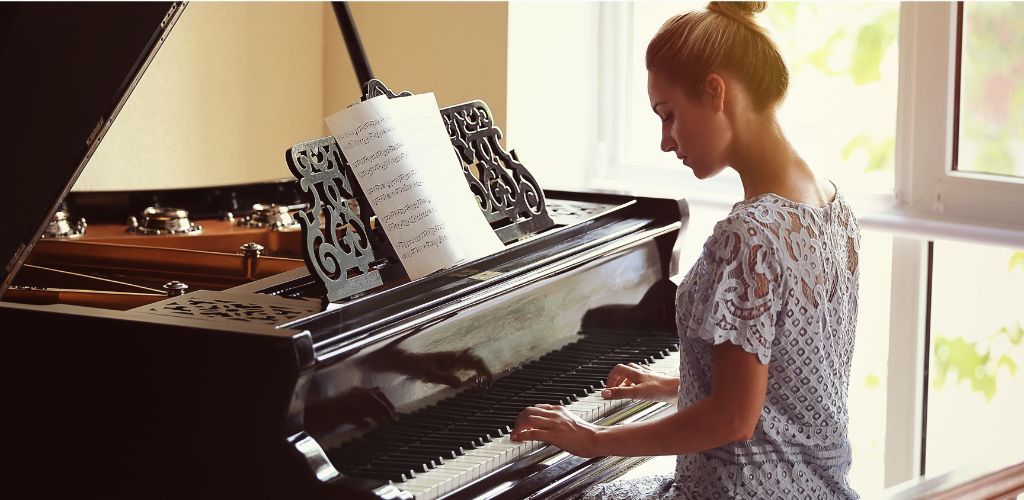
In conclusion, exploring the piano repertoire is integral to becoming a skilled pianist. It allows the player to expand their knowledge of different genres and styles of music.
Whether classical or contemporary, mastering demanding pieces takes a lot of practice and dedication, but it is worth it.
Performance and Interpretation
Expressing Musicality
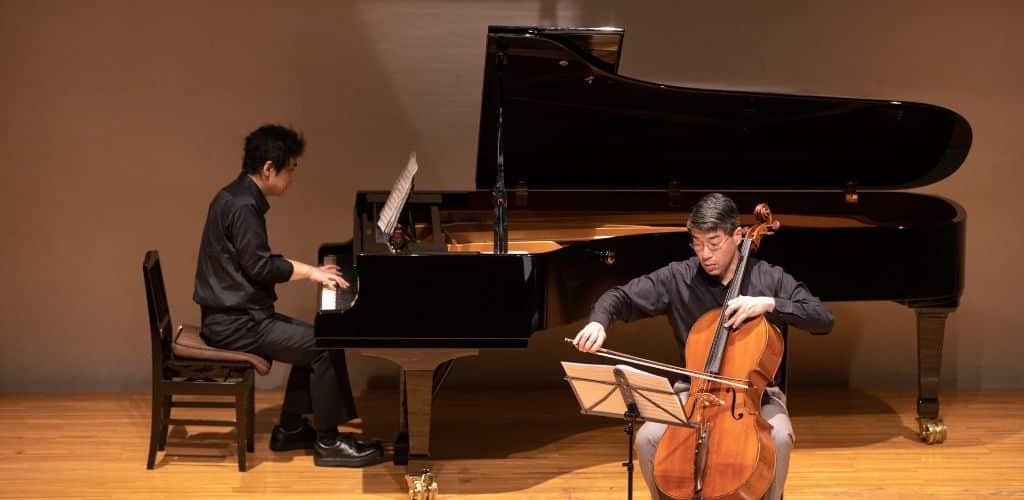

One of the most important aspects of piano performance is expressing musicality. It is not enough to play the notes correctly; a good performer must also convey the emotion and feeling behind the music.
This can be achieved through dynamics, phrasing, and articulation.
When preparing for a performance, exploring the piece’s musicality is important. This involves experimenting with different interpretations and finding the one that best captures the essence of the music.
A good performer must also be able to adapt to other musical styles and genres.
Overcoming Stage Fright
Stage fright is a common problem among performers, and it can hurt the musical outcome.
However, several strategies can be used to overcome this fear.
One approach is to practice performing in front of others. This can help to build confidence and reduce anxiety.

Another strategy is focusing on the music rather than the audience. By immersing themselves in the music, performers can become more relaxed and focused.
It is also important to remember that a pass with merit or distinction is not the ultimate goal of a performance. Instead, the goal should be to communicate the emotions and feelings of the music to the audience.
By focusing on this performance aspect, performers can overcome their stage fright and deliver a memorable musical experience.
The Examination Process
What to Expect on Exam Day

On the day of the piano exam, candidates must arrive at the venue before the scheduled time. They should bring their piano exam pieces, scales, arpeggios, and other required materials.
The examiners will check their identity and ensure they have the correct pieces. The candidates will then be taken to the exam room, where they will be given a few minutes to warm up on the piano.
The candidate must perform their chosen pieces, scales, and arpeggios during the exam and complete the sight-reading and aural tests. The exam usually takes 20-30 minutes, depending on the grade.
The candidate should aim to perform to the best of their ability and follow the examiner’s instructions.
The Assessment Criteria
The assessment criteria for piano exams are based on a syllabus provided by the exam board.
The requirements include technical skills, musicality, accuracy, and interpretation. The examiner will assess the candidate’s performance based on these criteria and provide feedback on areas that need improvement.
Candidates are awarded a pass, merit, or distinction based on their performance. A pass indicates that the candidate has met the minimum requirements for the grade, while a merit or distinction suggests a higher level of achievement.

Candidates who fail the exam can retake it at a later date.
In the UK, the most popular provider of piano exams is the Associated Board of the Royal Schools of Music (ABRSM). Their syllabus covers various musical styles and is designed to develop technical and musical skills.
The ABRSM also provides certification, which is recognized internationally, for candidates who complete their exams.
Overall, the examination process for piano exams can be challenging but rewarding. Candidates can achieve their goals and develop their musical abilities through hard work and dedication.
Advancing
Through the Grades
Advancing through the grades in piano is a journey that requires dedication, passion, and practice.
It is a process that takes time, and each grade builds on the last, refining technical ability and building musical perception.
Intermediate to Advanced Levels
Intermediate piano grades include grades 4 to 6, and advanced piano grades include grades 7 and 8. Students engage with virtuosic pieces and complex musical structures at these levels, honing their artistic interpretation and expressive capabilities.
Advancement through these grades often requires a longer time commitment, with approximately two to three years per grade, as the musical challenges become more demanding.
For instance, Grade 4 requires a deeper understanding of dynamics and articulation, while Grade 5 demands higher technical proficiency and musicality.
In Grade 6, students are expected to perform pieces with more advanced techniques, such as octave scales and arpeggios.
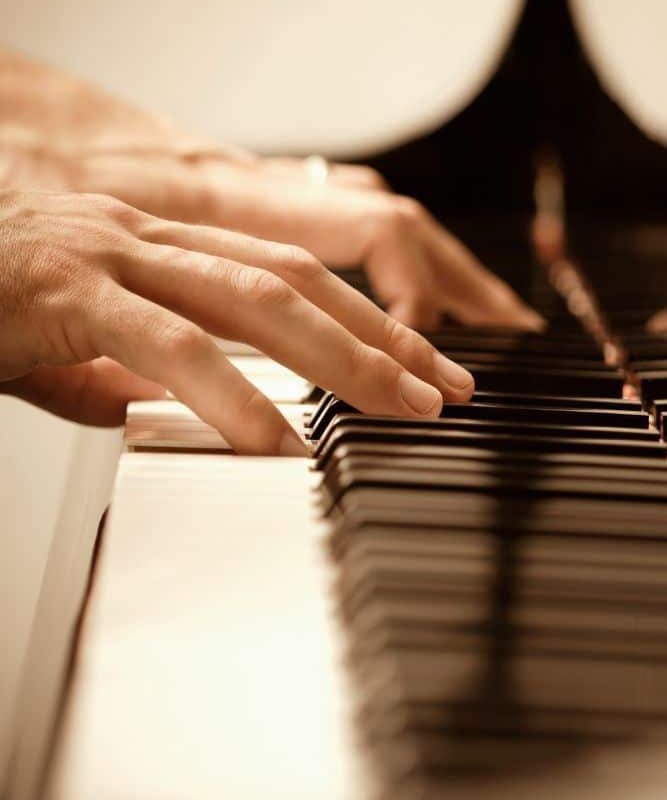
Setting Long-Term Goals
Setting long-term goals is crucial when advancing through the piano grades. It helps students stay motivated and focused on their progress.
For instance, a student who has completed Grade 3 may set a long-term goal of completing Grade 6 within the next two years.
It is also important to note that advancing through the piano grades does not necessarily make one an advanced musician.

While the grades provide a good framework for learning, becoming an advanced musician requires much more than just completing them.
It requires a deep understanding of music theory, a broad repertoire, and a unique artistic voice.
In conclusion, advancing through the grades in piano is a rewarding journey that requires dedication, passion, and practice.
With a clear understanding of the intermediate and advanced piano grades and setting long-term goals, students can achieve their musical aspirations and become advanced musicians.
Resources for
Piano Students
Books and Online Materials
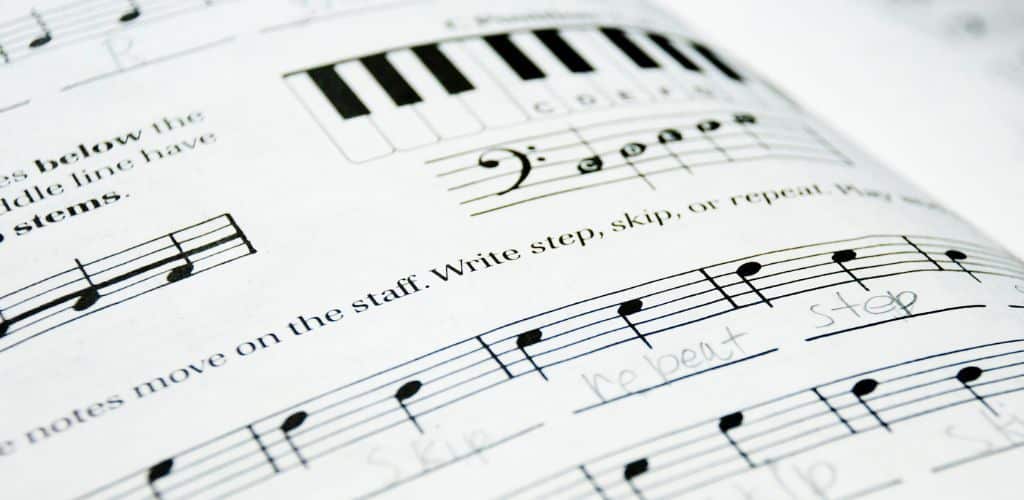
Many books and online materials are available to help piano students improve their skills and knowledge.
One excellent resource is “The AB Guide to Music Theory,” which provides a comprehensive guide to music theory that is essential for any piano student.
Another helpful book is “The Piano Handbook” by Carl Humphries, which covers various topics, including technique, theory, and repertoire.
For online resources, websites such as PianoTV and Hoffman Academy offer free video lessons and tutorials to help students learn new techniques and pieces.
The ABRSM website also provides many resources, including practice tips, exam preparation materials, and a database of piano pieces sorted by grade level.
Community and Forums

Joining a community of fellow piano students and teachers can be a great way to get support and advice.
Local music schools often offer group lessons and performance opportunities, which can help students build confidence and improve their skills. Online forums such as Piano World and r/piano on Reddit can also provide information and support.
Teaching platforms such as TakeLessons and Lessonface offer online piano lessons with professional teachers, which can be a convenient option for students unable to attend in-person classes.
Additionally, many music schools and teachers provide online lessons, allowing students to receive one-on-one instruction from the comfort of their own homes.
Many resources are available to help piano students improve their skills and knowledge.
Whether through books, online materials, or joining a community of fellow musicians, there are many ways to enhance your piano-playing abilities and achieve your musical goals.
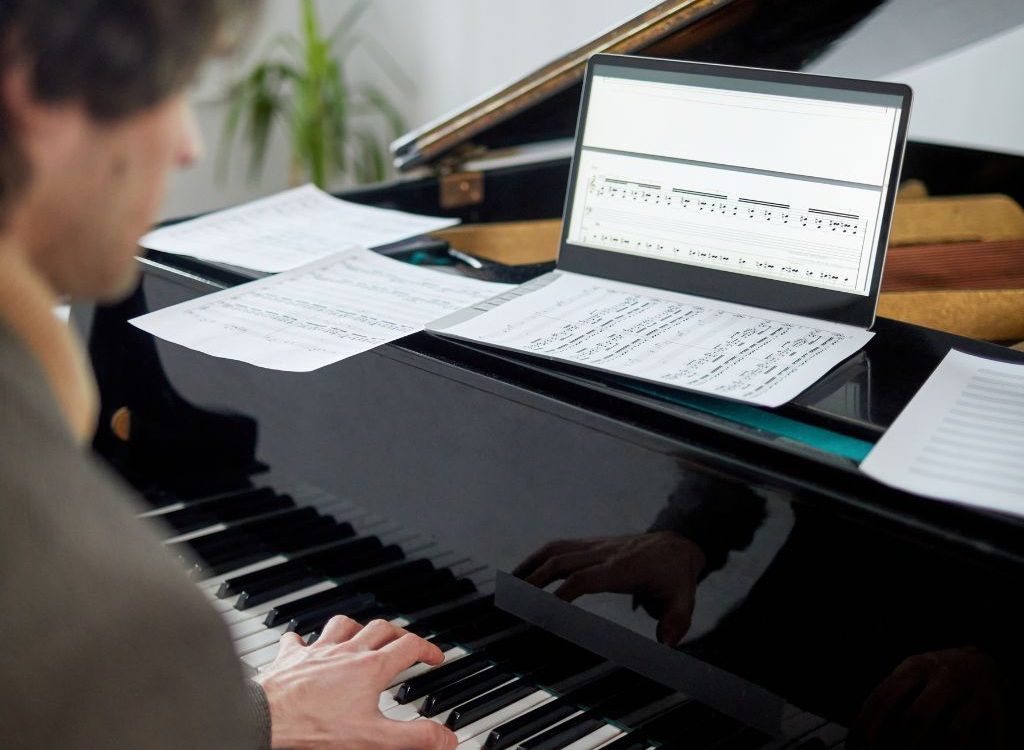
Preparing for Success
Mock Exams and Feedback

Mock exams are an essential part of preparing for practical piano exams. They help pianists develop a sense of accomplishment and provide an opportunity to receive feedback from their piano teacher.
Mock exams also allow pianists to practice the piano repertoire under exam conditions, which can help reduce anxiety and improve performance.
During mock exams, pianists should aim to play the pieces as accurately and musically as possible while also paying attention to the technical aspects of their playing.
Pianists should also be open to feedback from their piano teacher and take any constructive criticism on board to improve their playing.
The Role of Piano Teachers
Piano teachers play a crucial role in preparing pianists for practical piano exams.
They can offer guidance on the most suitable piano repertoire for the exam, provide feedback on pianists’ playing, and help them develop the necessary technical skills to perform the pieces accurately and musically.
Piano teachers can also help pianists develop a practice routine that will enable them to progress toward their exam goals. They can provide support and encouragement throughout the exam preparation process and help pianists manage any exam-related anxiety.
In summary, mock exams and feedback, as well as the guidance and support of a piano teacher, are essential elements in preparing for success in practical piano exams. By following these steps, pianists can develop the necessary skills and confidence to perform on exam day to the best of their abilities.
Top Piano Brand Guide
DP-12 Compact Digital Piano by Gear4music
DP-12 Compact Digital
Piano by Gear4music
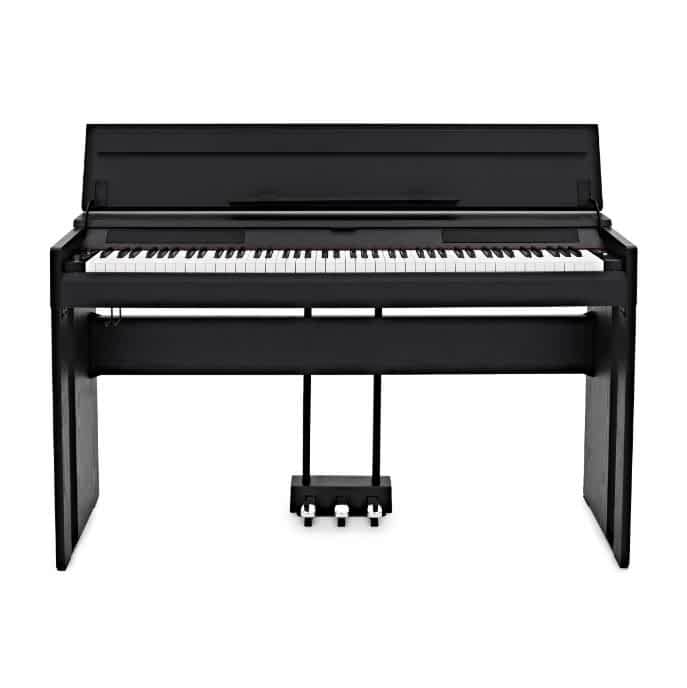
PERFECT FOR: Learning at home
FEATURES: 88-key digital piano ideal for living spaces
OTHER INFO: Synthetic ebony and ivory keys provide that premium grand feel
DP-12 Compact Digital
Piano by Gear4music
- Play with expression with a three-pedal unit and 128-note polyphony
- Get creative with 32 voices and a two-track playback recording
- With a sleek and stylish appearance
- No Bluetooth available
When you click ‘Check Price’, you’ll see there are loads of great places to buy this item. Our personal favorite is Sweetwater for the US, and Thomann and Gear4Music for the UK & Europe.
They are the largest music retailers, with excellent customer service, competitive prices, really fast shipping, and the longest guarantees.
The professional musician who wrote this article combined many things,
from the product build, manufacturer’s reputation through to feedback
from other users, to create our famous TedScore™.
Kawai CN21 Digital Piano
Kawai CN21 Digital Piano
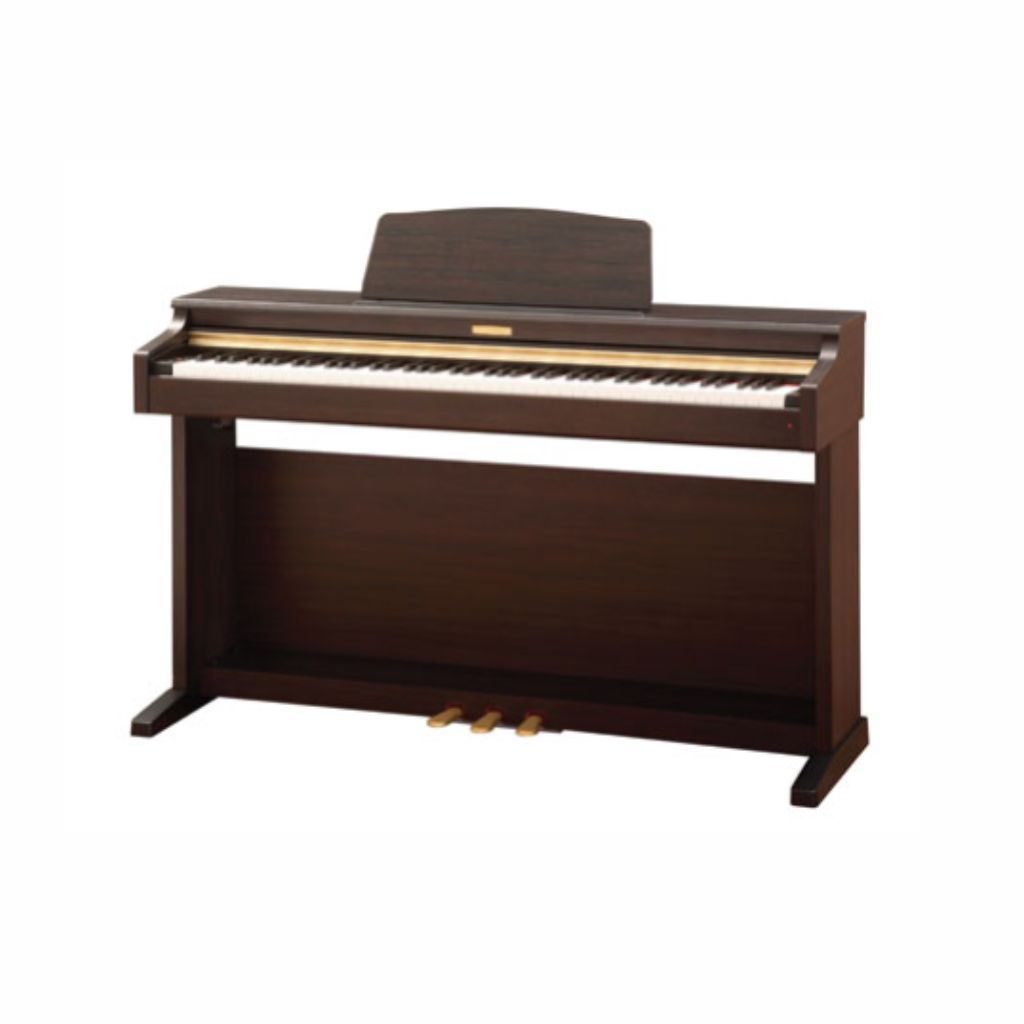
FEATURES: OLED Display That Makes Navigation Easy
OTHER INFO: Spatial Headphone Sound Technology Enhances The Depth And Realism Of The Sound
- Includes Kawai's lesson function to learn classic piano pieces
- Adjust the instrument's parameters with the Virtual Technician app
- Creates rich and expressive sounds like the SK-EX and EX concert grand pianos
- With Superior Headphone Sound technology to enhance playing experience
- Advanced mode requires an iPad to access
When you click ‘Check Price’, you’ll see there are loads of great places to buy this item. Our personal favorite is Sweetwater for the US, and Thomann and Gear4Music for the UK & Europe.
They are the largest music retailers, with excellent customer service, competitive prices, really fast shipping, and the longest guarantees.
The professional musician who wrote this article combined many things,
from the product build, manufacturer’s reputation through to feedback
from other users, to create our famous TedScore™.
Yamaha C3X PE Grand Piano
Yamaha C3X PE Grand Piano
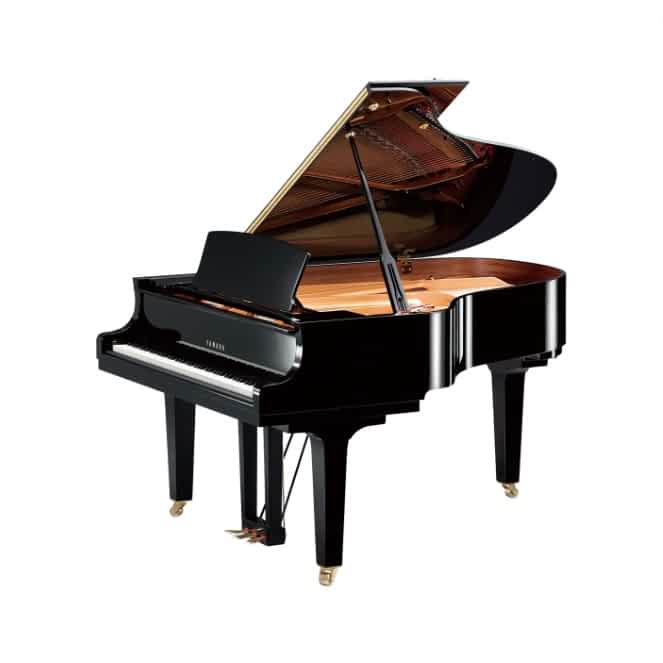
PERFECT FOR: use at home or in small performance spaces
FEATURES: Utilises 3 pedals for full sostenuto
OTHER INFO: Made from high-quality materials
Yamaha C3X PE Grand Piano
- With a length of 186 cm
- Produces beautiful, rich tones
- Available in a range of letters and models (G3, C3, C3X)
- An amazing sound that will make any pianist happy
- A piano that will last a lifetime
- Expensive piano - one of Yamaha's top-tier pianos
When you click ‘Check Price’, you’ll see there are loads of great places to buy this item. Our personal favorite is Sweetwater for the US, and Thomann and Gear4Music for the UK & Europe.
They are the largest music retailers, with excellent customer service, competitive prices, really fast shipping, and the longest guarantees.
The professional musician who wrote this article combined many things,
from the product build, manufacturer’s reputation through to feedback
from other users, to create our famous TedScore™.
Grades In Piano:
Finale
Piano grades are an excellent way for students to assess their proficiency in the instrument. They provide a structured path for learning and achieving new skills.
Students can use piano grades to measure their progress and set goals.
The most popular is the Associated Board of the Royal Schools of Music (ABRSM) piano exams. They include nine total piano grades, with the initial grade being the easiest and grade 8 being the hardest.

Each grade tests students in the following areas: scales and arpeggios, sight-reading, and aural testing. It’s important to note that piano grades aren’t the only way to measure a student’s progress on the instrument.
Some students prefer to learn more formally, while others may benefit from a more structured approach. Ultimately, the choice is up to the student and their learning style.
Overall, piano grades are an excellent tool for students who want to measure their progress on the instrument. They provide a clear path for learning and achieving new skills and can help students set goals.
Whether you pursue piano grades or not, the most important thing is to enjoy learning and playing the piano.
FAQ's
In the UK, piano grades typically range from 1 to 8, with additional diploma levels for advanced players. However, grade exams and music examination boards may vary in different countries.
Piano levels are often categorized into beginner, intermediate, and advanced levels. Formal music examination boards may also have specific grading systems, such as grades 1 to 8, followed by diploma levels for advanced pianists.
The highest grade in piano typically varies based on the grading system used by different music examination boards. However, in many systems, Grade 8 is the highest practical grade before the diploma levels for advanced pianists.
Piano music is often categorized into grade levels, typically from beginner (Grade 1) to advanced (Grade 8), with additional diploma levels for highly advanced pianists. Music examination boards use these levels to assess a pianist’s proficiency and progress.










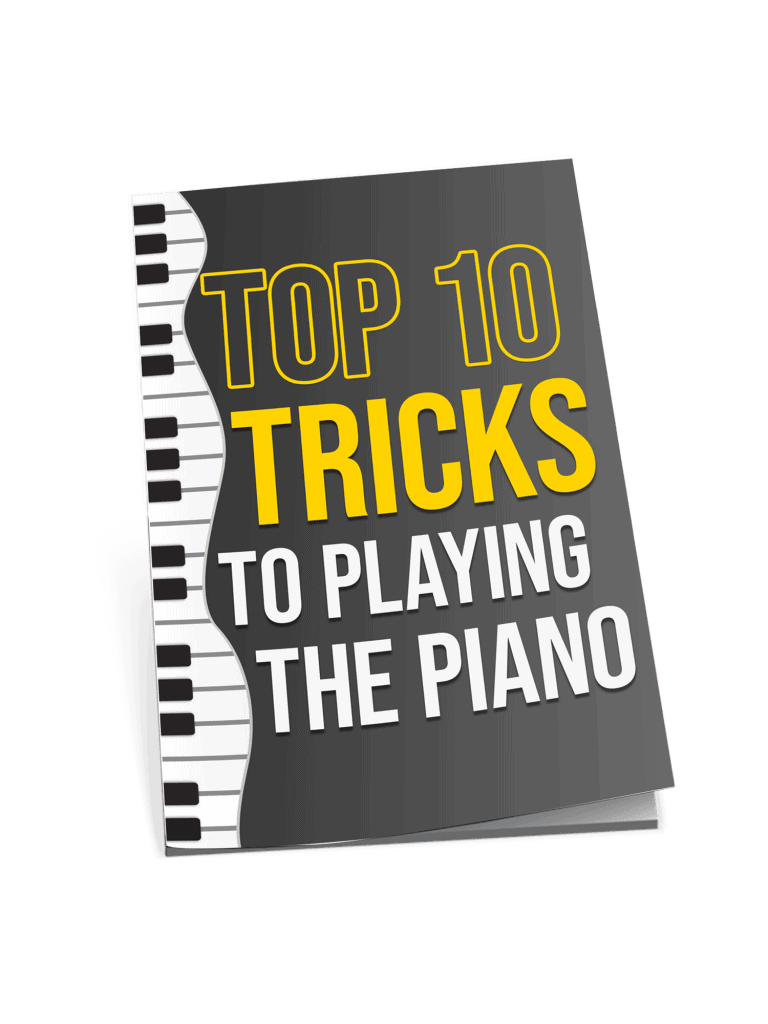
Ah, another article preaching the wonders of formal grade systems. Because, of course, no one can truly enjoy or understand the piano without adhering to a standardized test of skills. Here’s a thought: maybe we focus on the joy of music rather than turning it into another competitive sport.
i’m starting my piano journey pretty late, was worried about picking the right grade to start with. this piece made it a bit clearer but still kinda confused about all these grades and levels.
Really appreciate the section on essential skills development. It’s crucial to not skip the basics of scales and arpeggios, learned that the hard way lol.
Exactly!
So true, those fundamentals make or break your playing down the road.
Robert Emery, could you advise on how often beginners should practice scales to see significant improvement? Thanks.